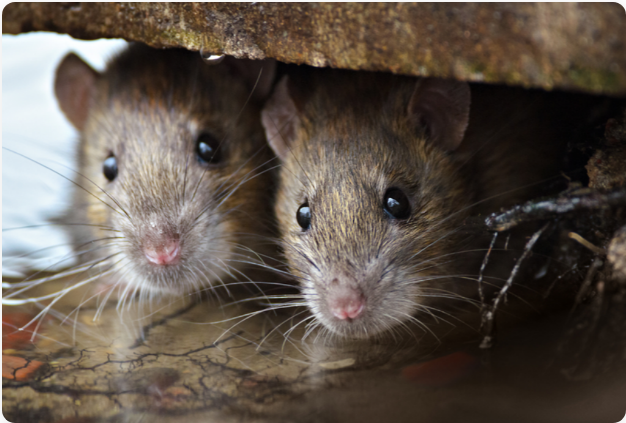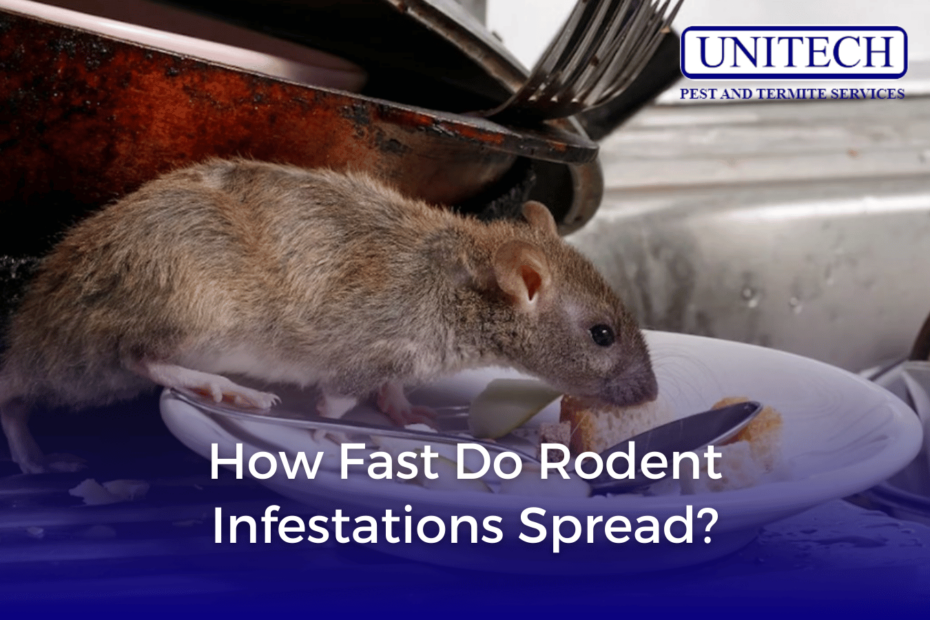Rodent infestations are a common problem that can quickly turn from a minor inconvenience to a major issue. Mice and rats are not just a nuisance; they can cause structural damage, contaminate food, and pose serious health risks. Understanding how quickly these infestations can spread is crucial for effective management. In this post, we will look at the factors that contribute to the rapid spread of rodent infestations, how to recognize the signs of an infestation, and some practical tips to prevent these unwelcome guests from taking over your home.

Factors Influencing the Speed of Spread
Environmental Conditions
Rodents adapt well to various environments, but some conditions can boost their spread. Warm, humid climates often lead to quicker infestations since they support fast breeding. Also, areas offering easy access to food and shelter, like cluttered spaces or places with lots of refuse, are perfect habitats for rodents.
Reproductive Habits
Rodents reproduce quickly; a pair of mice can have dozens of offspring in months, meaning a small infestation can escalate fast if not checked early. Their short gestation period and large litters significantly speed up infestation spread.
Access Points
Rodents can enter homes through tiny openings, such as cracks in walls, utility line gaps, and small holes. Once inside, they can move through walls, floors, and ceilings, spreading throughout a building. Sealing potential entry points is key to slowing their spread.
Signs of Infestations
Droppings and Urine
The first signs of a rodent problem are droppings and urine stains, often found in cupboards, near food, or along baseboards and walls. The size and amount of droppings can reveal the infestation’s scale.
Gnaw Marks
Rodents constantly gnaw to trim their teeth, often leaving gnaw marks on furniture, wiring, and food packages. This behavior can cause significant damage and fire hazards if they chew through electrical wires.
Noises and Odors
Scratching, scurrying sounds, particularly at night, can indicate rodent activity. Additionally, a musty odor, especially in enclosed areas, may suggest a large infestation.
Prevention Tips
Maintain Cleanliness
To deter rodents, keep your home clean and clutter-free. Dispose of trash regularly and store food in sealed containers. Minimizing clutter removes hiding spots, making your home less appealing to pests.
Seal Entry Points
Check your home for potential entry points and seal them using materials such as steel wool or caulk. Focus on areas near pipes, vents, and doors to keep rodents out.
Use Traps and Deterrents
Setting traps in areas where you suspect rodent activity can help manage small infestations. Additionally, natural deterrents like peppermint oil can be used to keep rodents away from specific areas.
Keep Your Home Safe: Expert Tips for Preventing Rodent Infestations
Rodent infestations can spread rapidly, turning a small problem into a major headache if not addressed promptly. By understanding the factors that contribute to their spread and recognizing the signs early, you can take proactive steps to manage and prevent infestations. Maintaining a clean environment, sealing entry points, and using traps can help keep your home rodent-free. Staying vigilant and acting quickly is key to preventing these unwelcome guests from causing damage and health concerns in your living space.
Don’t let rodents take over your space! Contact Unitech Pest for expert rodent control in St. Louis. Act now to protect your home and health from these unwelcome invaders. Call us today for a rodent-free tomorrow!


